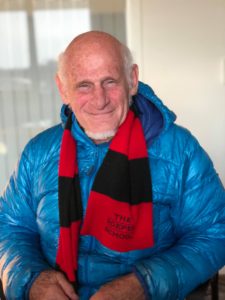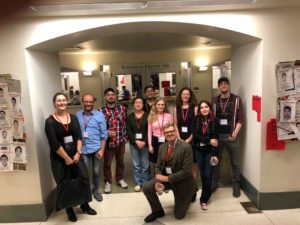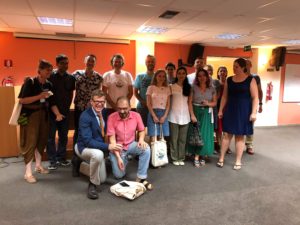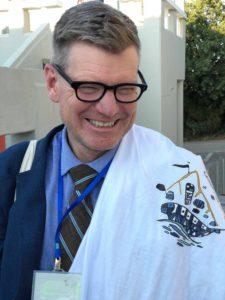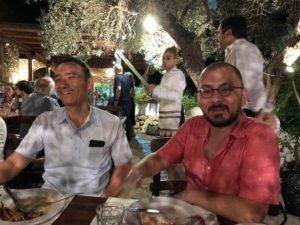Deniz Özyildiz gave an invited talk on `Unselected Embedded Questions‘ at the WAFL 14 conference that was held at MIT Oct. 19-21, 2018.
The full program can be found here: https://wafl14.mit.edu/program
An abstract of his talk follows.
Unselected embedded questions
In this talk, I focus on Turkish “unselected embedded questions” like in 1). Some of the entailments of 1) are given in a., b., and c.
1) Ali [ annesi geldi mi diye ] kapiyi acti.
Ali [ his.mother arrived PolQ say.C ] the.door opened
Ali opened the door in order to find out whether his mother had arrived.
a. Ali is entertaining the question “Has my mother arrived?”
b. Ali is agnostic about the answer to the question.
c. Ali opens the door with the purpose of finding the answer to the question.
These are puzzling because the embedded question apparently has no slot to fill in the syntax and in the semantics: The internal argument position of “open” is occupied by “the door” and a predicate like “open the door” does not express a relation that one has to questions or to propositions. The phenomenon occurs in a variety of Turkic languages, and also in languages like Japanese and Korean (Tomioka & Kim 2016, Kim 2018).
I argue that the subordinator “diye,” made up of the root de- (“to say”) and the conjunctive morpheme -(y)A, introduces a bleached attitude towards the embedded question, anchored to the matrix agent Ali. This attitude is then conjoined (roughly) with the matrix event of opening the door.
The account closely follows accounts of clausal subordination where the “attitude is coming from the embedded clause” (Bogal-Allbritten 2016, Kim 2018, Koopman & Sportiche 1989, Kratzer 2016, Moulton 2009, among many others). And has a variety of independently desirable consequences such as accounting for indexical shifting patterns under verbs of communicative reception (Özy?ld?z et al. 2018) and attitude sensitive complementizers in e.g., Laz (Demirok et al. 2018).

